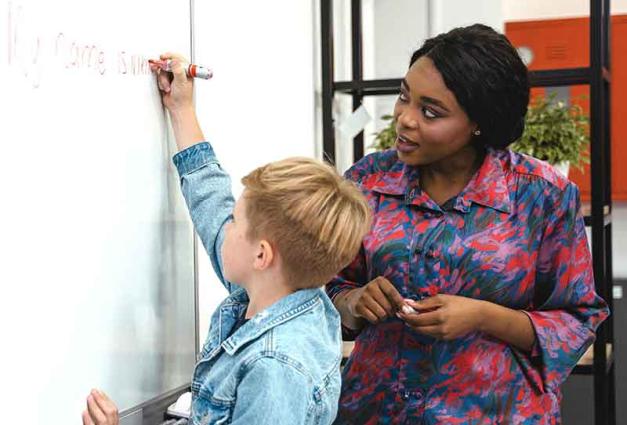We are a storytelling species. Every culture has storytelling traditions, and many groups—be they cultural, religious, national, or otherwise—use stories, parables, and folktales to convey their messages, values, and beliefs, and to foster a sense of connection and identity across generations. Children love to hear a good story. Parents, grandparents, and teachers tell stories to children not only to entertain, but also to teach them about their culture and the world.
Of course, stories are also used to mobilize people to war, oppress, and exclude. They argue their side of the conflict, and often use harsh language to refer to their enemies (like vermin or lice).
Can stories help address some of the most important societal problems, such as poverty, mass violence, extremism, gender-based violence, and climate change?
The answer is yes!
Civil society organizations are increasingly using stories as a tool to impact social change, such as to reduce gender-based violence, to reduce HIV transmission, and to promote reconciliation in the aftermath of violence. For instance, in South Africa, a TV series and a radio drama, Soul City, led to shifts in knowledge around domestic violence and what people can do to stop it; it also shifted the public perception that domestic violence was a private affair, facilitating more community action to prevent it.
In the aftermath of genocide in Rwanda, the radio drama Musekeweya depicts how two villages turned violent toward each other, and then how they reconciled. This drama increased cooperative behaviors, intergroup trust, and perceptions about the acceptability of interacting with members of the outgroup.
In my work, I have examined the impact of storytelling to address intergroup conflict and violent extremism. These stories are serial fictional dramas delivered through radio or TV, often depicting a conflict between two or more fictional groups or villages. They tackle the roots of the conflict, the role of different characters in the story, the factors and behaviors that influence escalations, and behaviors that contribute to reconciliation between groups.
How and why do stories change people's attitudes and behaviors? My research and that of others show a number of positive impacts.
- Through the portrayal of different characters, stories provide different perspectives and understanding of people on both sides of the conflict.
- People can identify with story role models and enact similar actions in their community.
- Stories can help people make sense of their reality, or see their reality in a new light.
- Stories can validate people's experiences, and give voice to their perspectives.
- Stories raise awareness about important issues, starting community discussions that can lead to community action for social change.
In my most recent research, I examined the effect of a six-month serial drama that aimed at tackling attitudes and behaviors related to violent extremism in the Sahel province of Burkina Faso. Here, there has been a significant rise in extremist violence over the past few years. The drama's goals were to denounce and reduce support for violent extremism and to raise awareness about the importance of police–community collaboration for fighting violent extremism, as well as about issues that prevent collaboration.
Working with the non-governmental organization, Equal Access International, which produced the drama, and with funding from the United States Agency of International Development, we carried out an ambitious experimental study. The drama tells the story of a fictional town, which has become the target of attacks by an armed group. The armed group takes advantage of poverty and unemployment to lure youth into their ranks. The show also addresses mistrust between the police and the community, and reveals how this mistrust can be detrimental to protecting the community from violence. Lastly, the drama highlights the actions of two brave characters who work tirelessly to fight corruption in their town, speak up and hold leaders accountable for their actions, and work with businesses and local government to create employment opportunities for the youth.
We randomly selected 132 villages in one of the Sahel provinces in Burkina Faso to take part in the study, with 22 people in each of 66 villages listening to recorded episodes of the radio drama and 66 villages not receiving the opportunity to listen to the drama. Participants in the listening group were invited to hear the drama together every week for 12 weeks. At the end, all participants from the 132 villages were interviewed individually.
We found some interesting results. Participants who listened to the drama showed lower justification of violent extremism, compared to the group who didn't. They were also more likely to report violent extremism as a priority issue needing to be addressed by the government. Importantly, they reported more willingness to collaborate with the police to curb violent extremism in their communities, and they also were more likely to believe that they had the ability to make a positive impact on their community.
Our work shows that storytelling could be one possible avenue to promote reconciliation and address conflict peacefully. Using storytelling through mass media could be especially effective because mass media tends to reach a very high proportion of the population.
Research will continue, but it appears to be pretty simple: stories matter.
For Further Reading
Bilali, R. (2022). Fighting violent extremism with narrative intervention. Evidence from a field experiment in West Africa. Psychological Science, 33(2),184-195. Doi: 10.1177/09567976211031895
Bilali, R., & Staub, E. (2016). Interventions in real world settings. Using media to overcome
prejudice and promote intergroup reconciliation in Central Africa. In C. Sibley, & F. Barlow (Eds.), Cambridge handbook of the psychology of prejudice (pp. 607- 631). Cambridge University Press. Doi: 10.1017/9781316161579.027
Rezarta Bilali is Associate Professor of Psychology and Social Intervention in the Department of Applied Psychology at New York University, Steinhardt School of Culture, Human Development and Education. She studies the social psychology of intergroup conflict, historical narratives of violence, intergroup reconciliation, and media interventions in various conflict settings.




